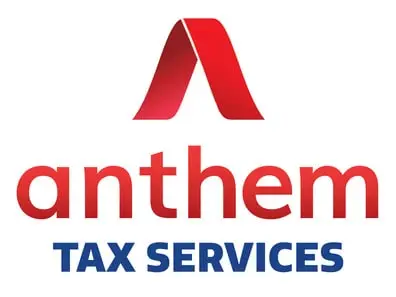
Fulfilling your tax obligations is undoubtedly a crucial aspect of being a responsible and law-abiding citizen. In the United States, the Internal Revenue Service (IRS) is the governmental body tasked with ensuring that citizens pay their taxes in full amounts and on time. However, you may not be able to pay your taxes after receiving your tax bill. As such, you may find yourself in the crosshairs of IRS collections, with the IRS amping up its efforts to retrieve all the money you owe by themselves or assigning private contractors to recover the taxes on the government’s behalf. Below is everything you should expect after the IRS sends you to collections.
The IRS Collections Process
Your Tax Return Is Filed
The IRS Collections Process begins with filing your tax returns and assessing your tax liability. When your tax return is filed, it is sent to a service center in your area of residence for processing. The service center receives the return, runs a standard accuracy check, and processes it into the IRS’s computer system. This process applies to all returns, whether they are written by hand or filed electronically. Generally, it takes about a month for the IRS to process current tax returns and up to two months to process returns for older years. Also, delays may happen due to incomplete information, wrong social security numbers, among others. Nevertheless, expect your return to become a return transcript after filing, stored in the IRS’s computer database for future reference.
You Receive A Notice Of Balance
The IRS will also send you a CP14 notice notifying you of the taxes you owe alongside any tax penalties and interests. This bill will typically detail payment options and the necessary due dates you must have in mind.
Notice Of Intent To Levy
The Notice of Intent to Levy is an essential step in the IRS collections process because the government fulfills its responsibility of notifying the taxpayer before seizing their assets at this stage. Consequently, you will likely receive a somewhat threatening letter informing you of the government’s intent to seize your property if you don’t defray your outstanding balance in full or enter into a reasonable payment agreement. This notice will be sent through certified mail to your last known address. However, note that you don’t necessarily have to receive the notice for it to be valid. According to the law, as long as the government mails the notice to your last known address, it has satisfied its legal obligation. Many experts advise that you take action at this point to resolve your liability because this is typically the stage where things go from bad to worse.
You Receive Notice Of The Filing of A Federal Tax Lien
Tax Liens are security interests granted over properties to ensure the parent of their tax liability. Sometimes, you will get a Notice of Federal Tax Lien in your mail following the first Notice Of Intent issuing. Receiving a lien filing isn’t automatic because the IRS files liens against taxpayers to secure interests in any property they might be holding. Therefore, paying your lien takes priority over any personal funds you may receive when you sell the property. Also, note that a lien applies to all your property, including those you acquire after the lien is filed. In addition, these liens will remain on your property until you pay your tax in full or when the collection statute of limitations expires.
The Automated Collection Systems (ACS) Pick Up Your Case
The ACS is a network of 23 telephonic collection centers across the U.S. The ACS performs IRS Collections contact functions, receives incoming calls, and makes outgoing calls to encourage defaulting taxpayers to pay up. It also investigates your location and the location of any other assets you may have. Your local service center will likely transfer your account to the ACS after its collection efforts fail to yield sufficient results.
The IRS Assigns A Revenue Officer To Your Case
A Revenue officer’s involvement in your case is the most severe level in the IRS collections process until the district council gets involved. A local revenue officer will likely pick up your case if the ACS’s efforts aren’t fruitful and all other contacts by phone fails. In addition, a local revenue officer will almost always step in if your case meets a high collection priority. These officers may contact you at home or work, access your DMV records, and look into other local sources. They can even contact third parties like your family members and neighbors in a bid to get hold of you. Furthermore, these revenue officers can even issue summons to you, asking you to show up at their offices with your records at a designated time.
Final Thoughts
It is never a good idea to approach complex financial decisions without sound advice from a team who understands the choices you’re weighing therefore we are here to assist you when it comes to tax relief and keeping the IRS out of your life. If you need help filing taxes or are behind on taxes our team of tax professionals can assist you with getting your taxes in order. Schedule an appointment today by phone or email.
What Happens If The IRS Sends You To Collections?
Fulfilling your tax obligations is undoubtedly a crucial aspect of being a responsible and law-abiding citizen. In the United States, the Internal Revenue Service (IRS) is the governmental body tasked with ensuring that citizens pay their taxes in full amounts and on time. However, you may not be able to pay your taxes after receiving your tax bill. As such, you may find yourself in the crosshairs of IRS collections, with the IRS amping up its efforts to retrieve all the money you owe by themselves or assigning private contractors to recover the taxes on the government’s behalf. Below is everything you should expect after the IRS sends you to collections.
The IRS Collections Process
Your Tax Return Is Filed
The IRS Collections Process begins with filing your tax returns and assessing your tax liability. When your tax return is filed, it is sent to a service center in your area of residence for processing. The service center receives the return, runs a standard accuracy check, and processes it into the IRS’s computer system. This process applies to all returns, whether they are written by hand or filed electronically. Generally, it takes about a month for the IRS to process current tax returns and up to two months to process returns for older years. Also, delays may happen due to incomplete information, wrong social security numbers, among others. Nevertheless, expect your return to become a return transcript after filing, stored in the IRS’s computer database for future reference.
You Receive A Notice Of Balance
The IRS will also send you a CP14 notice notifying you of the taxes you owe alongside any tax penalties and interests. This bill will typically detail payment options and the necessary due dates you must have in mind.
Notice Of Intent To Levy
The Notice of Intent to Levy is an essential step in the IRS collections process because the government fulfills its responsibility of notifying the taxpayer before seizing their assets at this stage. Consequently, you will likely receive a somewhat threatening letter informing you of the government’s intent to seize your property if you don’t defray your outstanding balance in full or enter into a reasonable payment agreement. This notice will be sent through certified mail to your last known address. However, note that you don’t necessarily have to receive the notice for it to be valid. According to the law, as long as the government mails the notice to your last known address, it has satisfied its legal obligation. Many experts advise that you take action at this point to resolve your liability because this is typically the stage where things go from bad to worse.
You Receive Notice Of The Filing of A Federal Tax Lien
Tax Liens are security interests granted over properties to ensure the parent of their tax liability. Sometimes, you will get a Notice of Federal Tax Lien in your mail following the first Notice Of Intent issuing. Receiving a lien filing isn’t automatic because the IRS files liens against taxpayers to secure interests in any property they might be holding. Therefore, paying your lien takes priority over any personal funds you may receive when you sell the property. Also, note that a lien applies to all your property, including those you acquire after the lien is filed. In addition, these liens will remain on your property until you pay your tax in full or when the collection statute of limitations expires.
The Automated Collection Systems (ACS) Pick Up Your Case
The ACS is a network of 23 telephonic collection centers across the U.S. The ACS performs IRS Collections contact functions, receives incoming calls, and makes outgoing calls to encourage defaulting taxpayers to pay up. It also investigates your location and the location of any other assets you may have. Your local service center will likely transfer your account to the ACS after its collection efforts fail to yield sufficient results.
The IRS Assigns A Revenue Officer To Your Case
A Revenue officer’s involvement in your case is the most severe level in the IRS collections process until the district council gets involved. A local revenue officer will likely pick up your case if the ACS’s efforts aren’t fruitful and all other contacts by phone fails. In addition, a local revenue officer will almost always step in if your case meets a high collection priority. These officers may contact you at home or work, access your DMV records, and look into other local sources. They can even contact third parties like your family members and neighbors in a bid to get hold of you. Furthermore, these revenue officers can even issue summons to you, asking you to show up at their offices with your records at a designated time.
Final Thoughts
It is never a good idea to approach complex financial decisions without sound advice from a team who understands the choices you’re weighing therefore we are here to assist you when it comes to tax relief and keeping the IRS out of your life. If you need help filing taxes or are behind on taxes our team of tax professionals can assist you with getting your taxes in order. Schedule an appointment today by phone or email.


